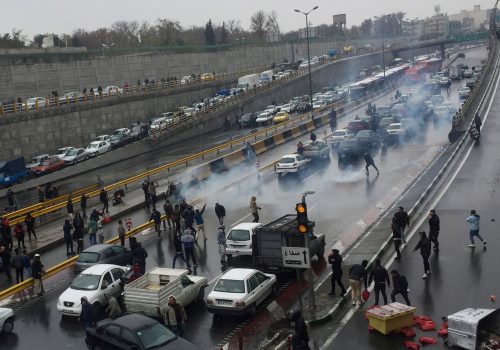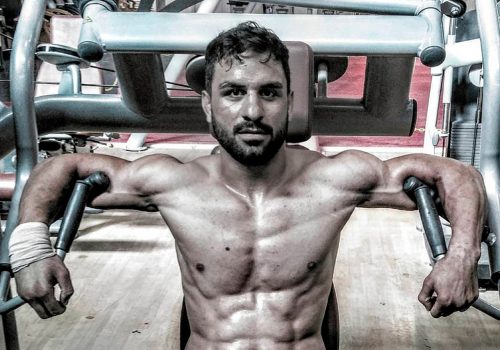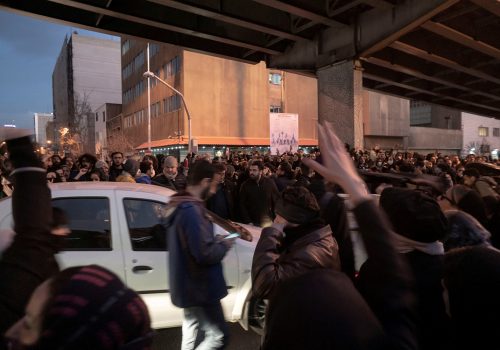Swedish trial paves the way for accountability for Iran’s human rights violations
به زبان فارسی بخوانید
در روز 18 آبان 1398 یکی از اتباع ایران وارد سوئد شد و توسط مقامات محلی دستگیر گردید زیرا به داشتن در اعدام جمعی زندانیان سیاسی در ایران در طی تابستان 1367مظنون بود. این دستگیری میتواند بالقوه نخستین گام در جهت پاسخگویی برای واقعهای باشد که اغلب به عنوان یکی از تاریک ترین فصول تاریخ چهل و یک سالۀ جمهوری اسلامی توصیف میشود.
بین ماههای تیر و مهر 1367، هزاران زندانی سیاسی با وابستگیهای سیاسی گوناگون در طی چند هفته اعدام شدند. بسیاری از این زندانیان پیشتر تحت محاکمه قرار گرفته بودند و به حبس محکوم گردیده بودند. به دنبال فتوایی که توسط مؤسس جمهوری اسلامی، آیت الله روح الله خمینی در تیر ماه 1367 صادر شد که طی آن فرمان اعدام زندانیان سیاسی را صادر نموده بود، این زندانیان را برای بازجویی در برابر آنچه که «کمیسیونهای مرگ» نامیده میشدند، حاضر نمودند. اگر پاسخهای این افراد رضایتبخش نبود، آنها را دست
برای اعدام میفرستادند و بعداً در گورهای جمعی گمنامی دفن میکردند.
حمید نوری که یک تبعۀ ایرانی است، به اتهام مشارکتش در این اعدامهای دسته جمعی که در زندان گوهر دشت در حومۀ کرج در حدود 20 کیلومتری تهران صورت گرفت، مظنون به جنایات جنگی است. اکنون بیش از یک سال است که وی در سوئد در بازداشت به سر میبرد و انتظار میرود محاکمۀ وی امسال آغاز شود.
تابستان 1367 نه اولین و نه آخرین باری است که جمهوری اسلامی به نقض شدید حقوق بشر علیه دگراندیشان دست زده است. اما این واقعۀ بخصوص اثر زخم عمیقی بر پی کر آنهایی که عزیزانشان را از دست دادهاند به جای گذاشته و اقداماتی را برای پاسخگویی موجب شده است. مقامات ایرانی نسبت به انجام تحقیقات در مورد این اعدامها هیچگونه میل و رغبتی نشان ندادهاند. در عوض، چندین تن که مستقیماً در انجام این اعدامها شرکت داشتهاند در حال حاضر بر مسند قدرت نشستهاند در حالیکه خانوادههایی که خویشاوندان نزدیک شان را از دست دادهاند، به علت آنکه میخواهند بدانند چه بر سر آنها آمده است، مورد آزار و اذیت قرار میگیرند. اگر چه تعدادی از متخصصان سازمان ملل متحد اخیراً مصرّانه از جمهوری اسلامی ایران خواستند تا تحقیقاتی را در بارۀ کشتار جمعی سال 1367 آغاز کند، این وقایع و سرنوشت خانوادههای آنهایی که نابود شدند، توجه کمی را در سطح بینالمللی برانگیخته است. بنابراین امید به اجرای عدالت، چشم انداز تیره و تاری داشته است.
جریان رسیدگی قضایی علیه نوری، راهی به سوی اجرای عدالت برای قربانیان نقض شدید حقوق بشر در ایران میگشاید که قبلاً به آن توجهی نشده بود – یعنی تعقیب قانونی در دادگاههای محلی کشور دیگری غیر از ایران، از طریق اِعمال صلاحیت قضایی جهانی. چندین محاکمه که در حال حاضر علیه چند تن از اتباع سوری متهم به جنایات جنگی و جنایت علیه بشریت در دادگاههایی در سطح اروپا در جریان هستند نشان دادهاند که هنگامی که تمام راههای دیگر مسدود باشند، رسیدگی قضایی در دادگاههای محلی کشورهای دیگر، ابزاری مفید در جهت تلاش برای اجرای عدالت است.
بسیاری از کشورها صلاحیت قضایی جهانی را در قوانین داخلی کشورشان تصویب کردهاند و بدین ترتیب توانستهاند در مورد جنایات بدون توجه به اینکه در کجا، توسط چه کسی و علیه چه کسی ارتکاب یافتهاند، تحقیق نموده و آنها را تحت پیگرد قانونی قرار دهند. در حالیکه برخی از کشورها در مورد اختیاراتشان برای اِعمال صلاحیت قضایی جهانی محدودیتهای قانونی وضع کردهاند، مقامات سوئد در مورد جنایات بینالمللی اصلی از قبیل جنایات جنگی، جنایت علیه بشریت، و نسل کشی، صلاحیت قضایی جهانی را به طور کامل اِعمال میکنند.
بعضی از کشورهای اروپایی از جمله سوئد در مورد جنایاتی که توسط نمایندگان حکومت سوریه و داعش (دولت اسلامی عراق و شام) در سوریه و عراق صورت گرفته، اقداماتی که تحقیقات بنیادی [structural investigation] نامیده میشوند را به اجرا درآوردهاند. مقامات کشورها از طریق انجام تحقیقات بنیادی [structural investigation]، به جمع آوری شواهد، از جمله شهادت شهود و قربانیان میپردازند که بعداً میتواند به انجام تحقیقات خاص فردی در مورد اعمال مرتکبینی که شناسایی شدهاند، منجر شود. مقامات سوئدی همچنین با مقامات همپای خود در آلمان هم همکاریهای نزدیکی دارند و به هنگام ضرورت اطلاعاتی را با یکدیگر مبادله میکنند، و این در حالیست که فرانسه و آلمان در همکاری با یکدیگر، گامی فراتر برداشتهاند و یک تیم مشترک تحقیقاتی تشکیل دادهاند. همچنین این کشورها از طریق یوروجاست [Eurojust] که نهادهای قضایی کشورهای اتحادیۀ اروپا را گرد هم میآورد، مرتباً با یکدیگر ملاقات میکنند تا همکاریهای مشترک خود را در مبارزه علیه جنایات فراملی تقویت نمایند.
در حال حاضر در هیچیک از کشورهای اروپایی هیچگونه تحقیقات بنیادی [structural investigation] در مورد جنایات اصلی بینالمللی که توسط ایران ارتکاب یافته است، در جریان نیست. به علاوه، محاکمۀ آتی نوری نخستین محاکمهای است که تا کنون علیه یک فرد که نمایندۀ جمهوری اسلامی ایران است، برای ارتکاب جنایات اصلی بینالمللی انجام میشود. این محاکمه پیام مهمی را ارسال میکند که حوادث هولناک تابستان 1367 فراموش نشده است و افرادی که چنین اقداماتی را انجام دادند از مجازات مصون نخواهند بود.
پیگرد قانونی جنایات اصلی بینالمللی بدون دسترسی داشتن به صحنۀ جنایت آسان نیست، پیگرد قانونی جنایاتی که در یک کشور دیگر ارتکاب یافته، مدل کاملی از چگونگی اجرای عدالت هم نیست. در ارتباط با جنایات اصلی بینالمللی، ساختار جهانی پاسخگو یی برای جنایات فردی، بر پایه اصل صلاحیت تکمیلی قرار دارد؛ به این معنا که دادگاههای بینالمللی فقط هنگامی موارد جنایات اصلی بینالمللی را مورد تحقیق و پیگرد قرار میدهند که حوزههای دادرسی ملی قادر یا مایل به انجام این کار نباشند.
در شرایط مطلوب، دادرسی چنین جنایاتی باید در قلمرو قضایی کشور محل وقوع جنایت انجام شوند. این موضوع نه تنها از جهت حفظ استقلال و حاکمیت کشورها اهمیت دارد بلکه برای افرادی که در نتیجۀ این جنایات آسیب دیدهاند نیز فرصتی فراهم میآورد تا بخشی از این اقدامات باشند و جریان دادرسی را دنبال نمایند. اما هنگامی که کشوری که جنایت در آن وقوع یافته قادر یا مایل به انجام دادرسی نیست، این مسئولیت بر عهدۀ کشورهای دیگر گذاشته میشود.
دادرسیهایی که در قلمرو صلاحیت قضایی جهانی انجام میشوند همچنین ممکن است چالشهای بخصوصی را به دلیل وجود محدودیتهای قوانین داخلی ایجاد کنند. در حالیکه چندین دهه است که جنایات جنگی بر اساس قوانین سوئد جرم محسوب میشوند، اما به دلیل تدوین قانونی جدید در سال 1393، جنایت علیه بشریت فقط به عنوان یک جنایت مستقل محکوم میشود. بنابراین تمام جنایاتی که تا قبل از سال 1393 ارتکاب یافتهاند که امروز میتوانستند به عنوان جنایاتی علیه بشریت تحت پیگرد قرار گیرند، به عنوان جنایات انفرادی از قبیل قتل، تجاوز، یا ایراد ضرب و جرح شدید مورد تعقیب قانونی قرار میگیرند.
اگر چه برای رسیدگی به جنایات فوق، قانون سوئد حق اِعمال صلاحیت قضایی جهانی را به دادگاههای سوئد اعطا میکند اما شمول قاعدۀ مرور زمان برای این جنایات، چالشهای خاصی در دادرسی جنایاتی که چند دهه قبل ارتکاب یافتهاند به وجود میآورد. این بدان معناست که در حالیکه قتل نباید هرگز شامل قاعدۀ مرور زمان شود، شکنجههای شدید و سیستماتیک میتوانند فقط تا پانزده سال پس از ارتکاب جرم، تحت تعقیب قانونی قرار گیرند. بدین ترتیب بسیاری از قربانیان شکنجه در زندانهای ایران در طی دهۀ 1360 ممکن است قادر نباشند در دادگاههای سوئد به عنوان دادخواه مطرح شوند مگر آنکه این جرایم در گروه جنایات جنگی قرار گیرند.
محدودیت منابع و امکانات برای مسئولان دادرسی کشوری نیز ممکن است آنها را وادار کند تا گسترۀ زمانی و مکانی کیفرخواست را خیلی محدود کنند و در نتیجه قربانیانی که خارج از این محدوده قرار میگیرند را از دسترسی به عدالت محروم نمایند.
اما علیرغم بسیاری از چالشها و به عنوان آخرین حربۀ ممکن، دادرسیهای محلی که از طریق اِعمال صلاحیت قضایی جهانی انجام میشوند، اجرای عدالتی تاریخی را برای جنایاتی که خانوادهها را چندین دهه در رنج و اندوه نگاه داشته امکان پذیر میسازد. محاکمۀ قریب الوقوع نوری به خوبی میتواند نخستین مورد از موارد بسیاری باشد که در سراسر قلمرو قضایی اروپا به اجرا درآید. این محاکمه همچنین ممکن است سازمانهای جامعۀ مدنی و مقامات دادرسی کشورها را ترغیب نماید تا در مورد جنایاتی که در سالهای اخیر توسط جمهوری اسلامی ایران ارتکاب یافته، تحقیق و رسیدگی کنند.
متأسفانه دهۀ 1360 پایان فجایع علیه ناراضیان سیاسی و مدافعان حقوق بشر در ایران نبوده است. اخیراً در سال 1398 به دنبال اعتراضات سراسری علیه دولت هزاران تن خودسرانه زندانی و شکنجه شدند. اقامۀ دعوا از طریق اِعمال صلاحیت قضایی جهانی اگر با ایجاد یک نظام تحقیقات بینالمللی، تقویت همکاریهای قضایی میان کشورها و تأمین منابع و امکانات برای مسئولان دادرسی کشورها همراه شود، میتواند به پیشگیری از چهل و یک سال دیگر مصونیت کامل از مجازات برای افرادی که در ایران مرتکب موارد شدید نقض حقوق بشر شدهاند کمک کند و در عین حال میتواند برای افرادی که در نتیجۀ این فجایع آسیب دیدهاند، مایۀ تسلی خاطر باشد.
آیدا سامانی حقوقدان بین المللی حقوق بشر و مشاور حقوقی در سازمان مدافعان حقوق مدنی [Civil Rights Defenders] و عضو هیئت مدیرۀ شبکۀ گروههای حمایت از پناهندگان سوئد [FARR] میباشد. او را در توئیتر دنبال کنید: Twitter: @aidasamani
On November 9, 2019, an Iranian national arrived in Sweden and was arrested by local authorities for his suspected involvement in the mass execution of political prisoners in Iran during the summer of 1988. The arrest has the potential to become the first step towards accountability for an event that is often described as one of the darkest chapters in the history of the forty-one-year-old Islamic Republic.
Between July and September 1988, thousands of political prisoners from different political affiliations were executed over the course of a few weeks. Many of the prisoners had already undergone trials and been sentenced to prison. Following a fatwa issued by the founder of the Islamic Republic, Ayatollah Ruhollah Khomeini, in July of 1988, which ordered the execution of political prisoners, they were brought before so called “death commissions” for questioning. When not providing satisfactory answers, they would be sent for execution and later buried in anonymous mass graves.
The Iranian national, Hamid Noury, is suspected of war crimes due to his alleged contribution to the mass executions that took place in Gohardasht Prison in the outskirts of Karaj, some 20 kilometers west of Tehran. He has now been detained in Sweden for more than a year and the trial against him is expected to begin this year.
The summer of 1988 is not the first nor the last time that the Islamic Republic has engaged in grave human rights violations against dissidents. Yet, this particular event has left deep scars on those who lost their loved ones and has sparked attempts to achieve accountability. Iranian authorities have been reluctant to initiate investigations into the executions. Instead, several individuals who were directly involved in carrying them out currently hold positions of power, while families who lost their next of kin are persecuted for demanding to learn about their fate. Although a number of United Nations experts recently urged the Islamic Republic to initiate investigations into the 1988 massacre, the events and the fate of the families of those that perished have sparked little international attention. Therefore, the prospect of justice has been bleak.
The judicial proceedings against Noury open a previously overlooked avenue to justice for victims of grave human rights violations in Iran—namely, that of national prosecution in domestic courts outside of Iran through the use of universal jurisdiction. Several ongoing trials against Syrian nationals accused of war crimes and crimes against humanity in courts across Europe have shown that judicial proceedings in foreign domestic courts are a useful tool in the pursuit of justice when all other routes are blocked.
Many states have adopted universal jurisdiction into their national legislations, enabling them to investigate and prosecute crimes regardless of where, by, and against whom they have been perpetrated. While some states have imposed legal limitations on their exercise of universal jurisdiction, Swedish authorities exercise pure universal jurisdiction over core international crimes such as war crimes, crimes against humanity, and genocide.
Several European states, including Sweden, have launched so called structural investigations into crimes committed by Syrian regime representatives and by the Islamic State of Iraq and al-Sham (ISIS) in Syria and Iraq. Through structural investigations, the authorities collect evidence, including witness and victim testimonies, that can later result in person-specific investigations into the actions of identified perpetrators. Swedish authorities also work closely with their German counterparts and exchange information when necessary, while France and Germany have taken their collaboration a step further through the development of a so-called Joint Investigation Team. The states also meet and communicate regularly through Eurojust, which collects national judicial bodies within the EU to strengthen their cooperation on fighting transnational crimes.
There are no ongoing structural investigations in any European state into core international crimes committed in Iran. Additionally, the upcoming trial against Noury serves as the first-ever trial against an individual for core international crimes committed by representatives of the Islamic Republic. The trial sends an important signal that the horrors of the summer of 1988 have not been forgotten and that those that enabled them will not enjoy impunity.
Prosecuting cases of core international crimes without access to the crime scene is not easy, nor does the prosecution of crimes committed in a foreign state serve as a perfect model of how justice should be served. The international structure for individual criminal accountability for core international crimes is based on the principle of complementarity; international courts will only investigate and prosecute serious international crimes when national jurisdictions are unable or unwilling to do so.
Ideally, judicial proceedings concerning such crimes should be conducted in the national jurisdiction where the crimes were committed. Not only is this a matter of protecting the sovereignty of states, but also of providing an opportunity for those affected by the crimes to be included in and to follow the proceedings. However, when the state where the crimes were committed is not able or willing to conduct judicial proceedings, the responsibility of other nation states is triggered.
Universal jurisdiction proceedings may also pose specific challenges due to limitations under domestic law. While war crimes have been criminalized under Swedish law for decades, crimes against humanity were only criminalized as a stand-alone crime through the adoption of a new law in 2014. Hence, all crimes committed prior to 2014, which could be prosecuted today as crimes against humanity, will instead be prosecuted as individual crimes, such as murder, rape, or particularly aggravated assault.
While Swedish law grants Swedish courts universal jurisdiction over those crimes, the statutory time limit for those crimes creates particular challenges in judicial proceedings about crimes perpetrated decades ago. This means that, while murder may never be subject to statutory limitation, acts of grave and systemic torture may only be prosecuted fifteen years after the perpetration of the crime. Thus, many victims of torture in Iranian prisons during the 1980s may not be able to enjoy status as plaintiffs in a Swedish court unless the crime can be classified as a war crime.
Limited resources for national prosecution authorities may also prompt prosecutors to excessively limit the indictment’s temporal and locational scope, thereby excluding victims from accessing justice if their claims fall outside said scope.
As a measure of last resort, and despite their many challenges, domestic proceedings conducted through universal jurisdiction enable historic justice for crimes that have haunted families for decades. The upcoming trial against Noury may very well be the first of many more cases to come across European jurisdictions. The trial may also inspire civil society organizations and national prosecution authorities to investigate more recent crimes by the Islamic Republic of Iran.
Unfortunately, the 1980s did not mark the end to atrocities against political dissidents and human rights defenders in Iran. As recently as 2019, thousands were arbitrarily detained and tortured following nationwide protests against the government. Paired with establishing an international investigation mechanism, strengthened judicial cooperation between states, and well-resourced national prosecution authorities, universal jurisdiction proceedings may help prevent another forty-one years of total impunity for perpetrators of grave human rights violations in Iran while granting redress for those affected by the violations.
Aida Samani is an international human rights lawyer, a legal advisor at Civil Rights Defenders and a board member of the Swedish Network of Refugee Support Groups (FARR). Follow her on Twitter: @aidasamani.
Image: A poster that reads " 1988 Massacre. End Impunity Launch Independent Inquiry" is seen during protest against Iranian President Hassan Rouhani outside of U.N. headquarters on the day Rouhani addresses the General Assembly of the United Nations in New York, U.S., September 20, 2017. REUTERS/Amr Alfiky


